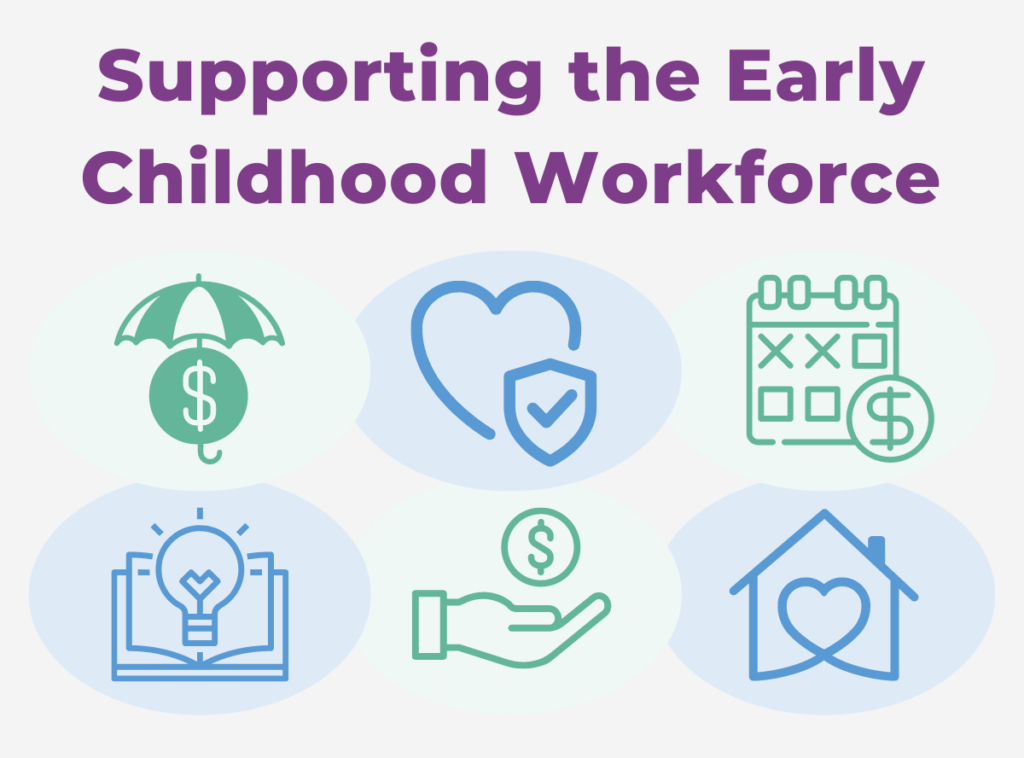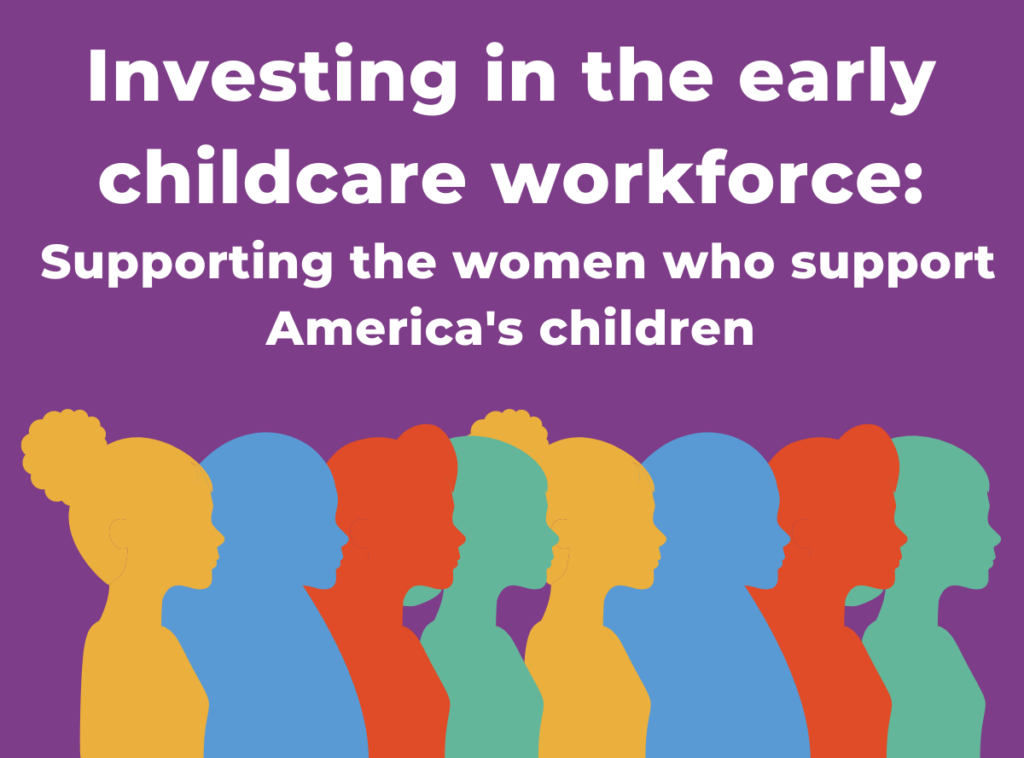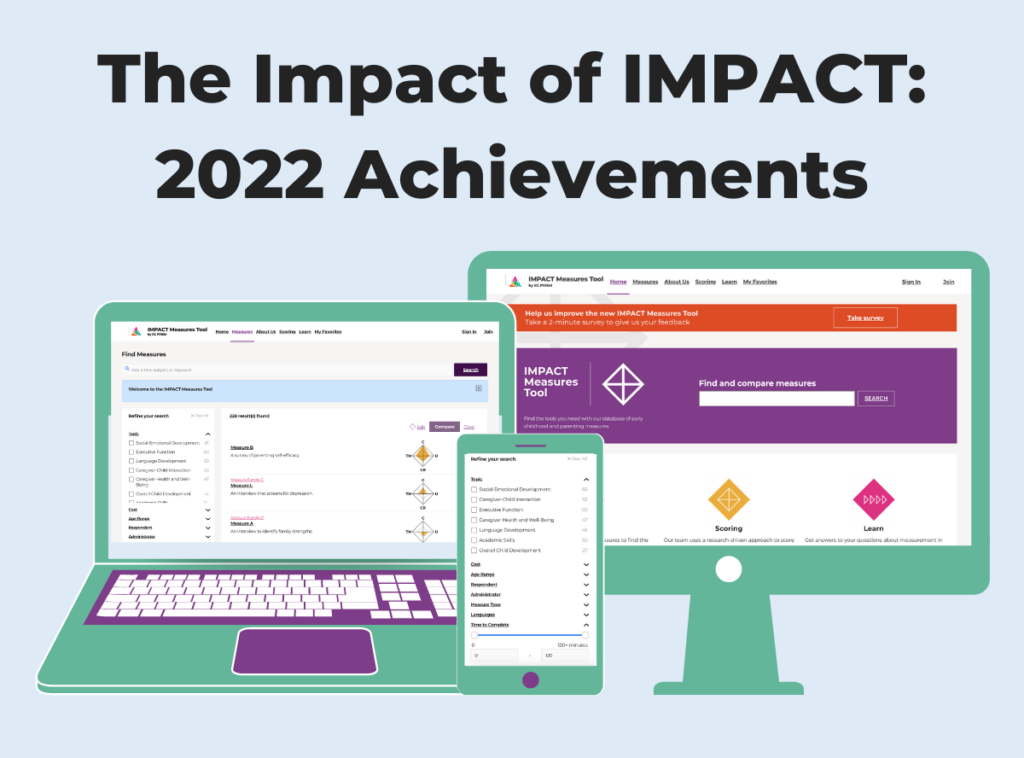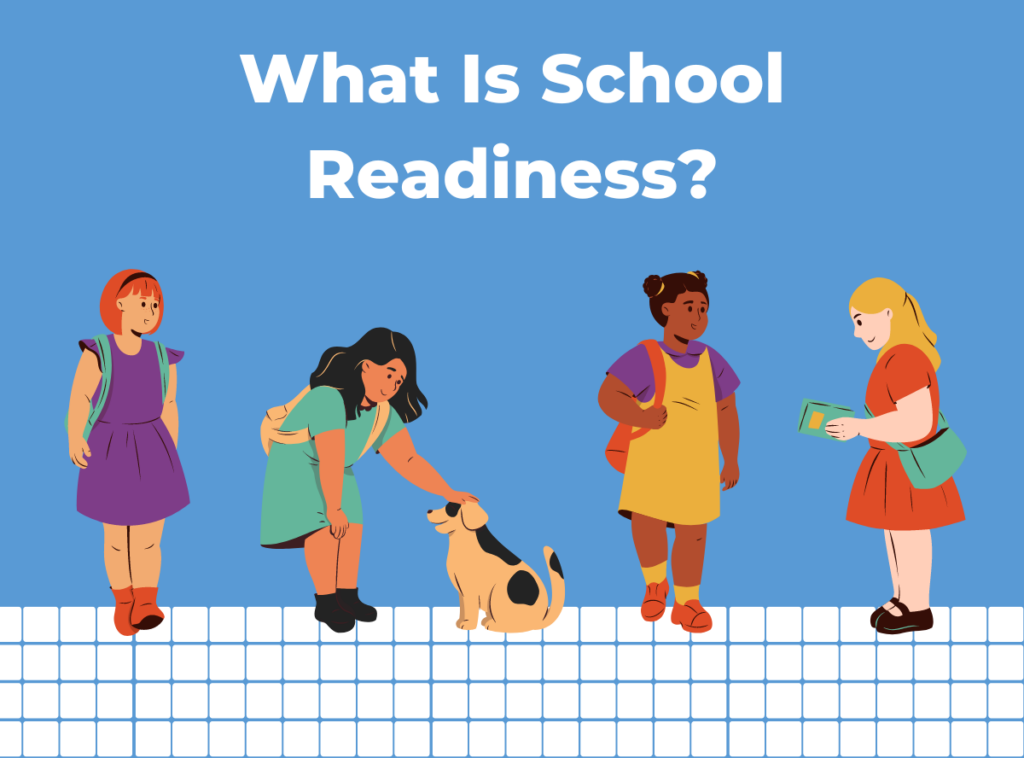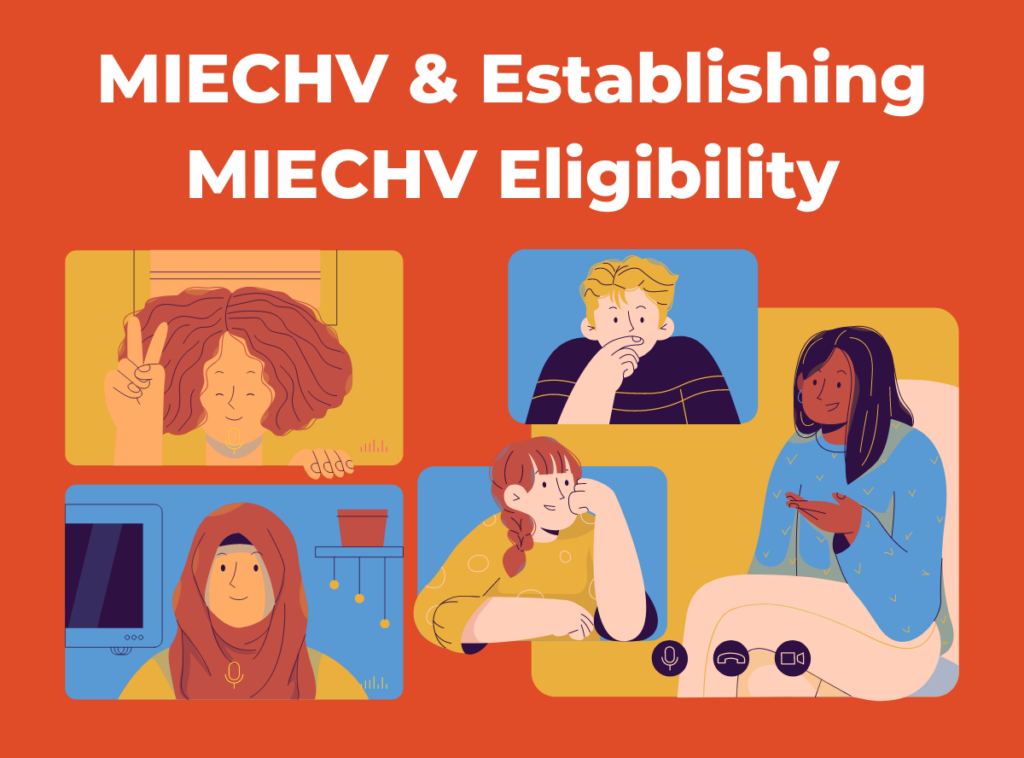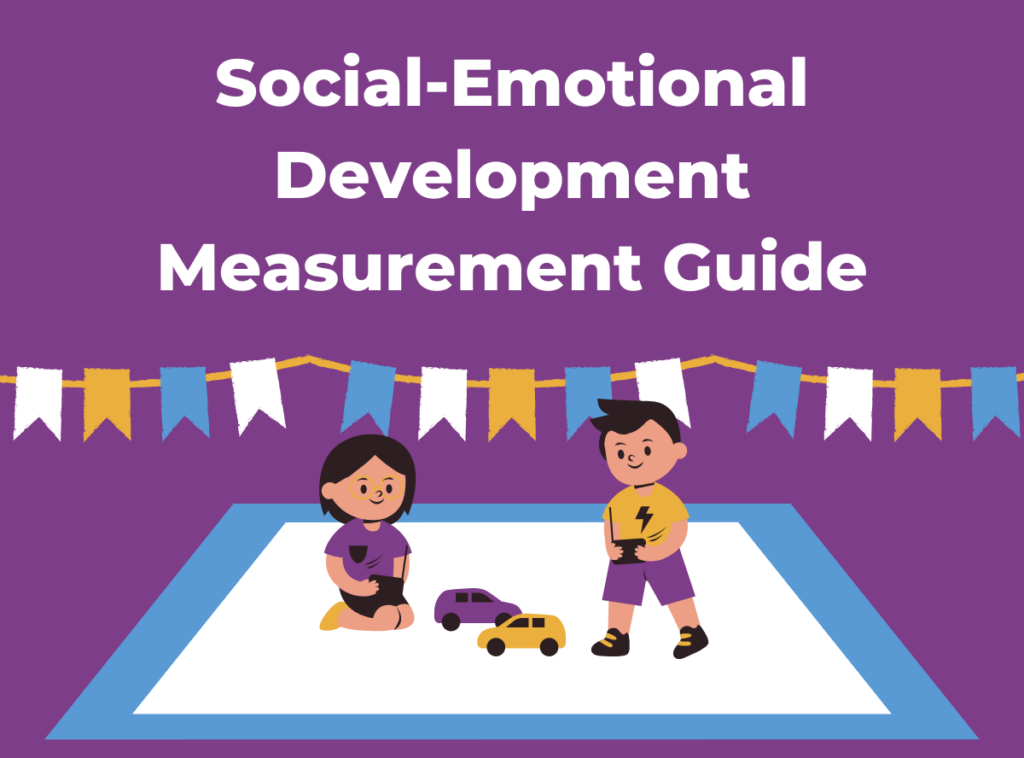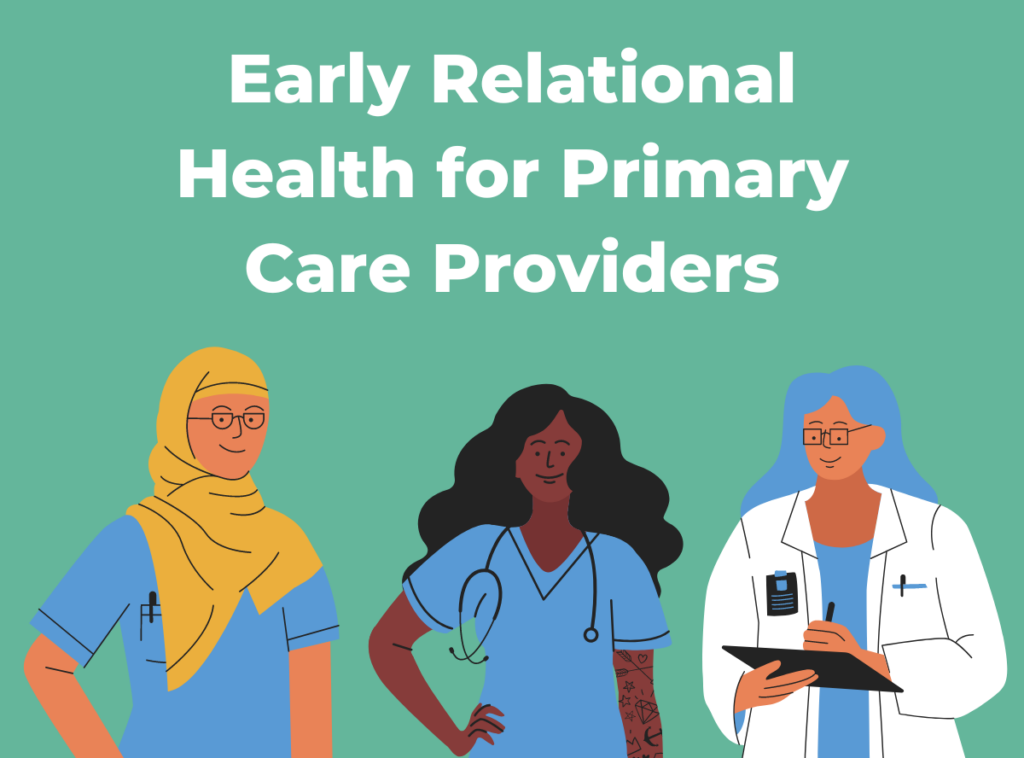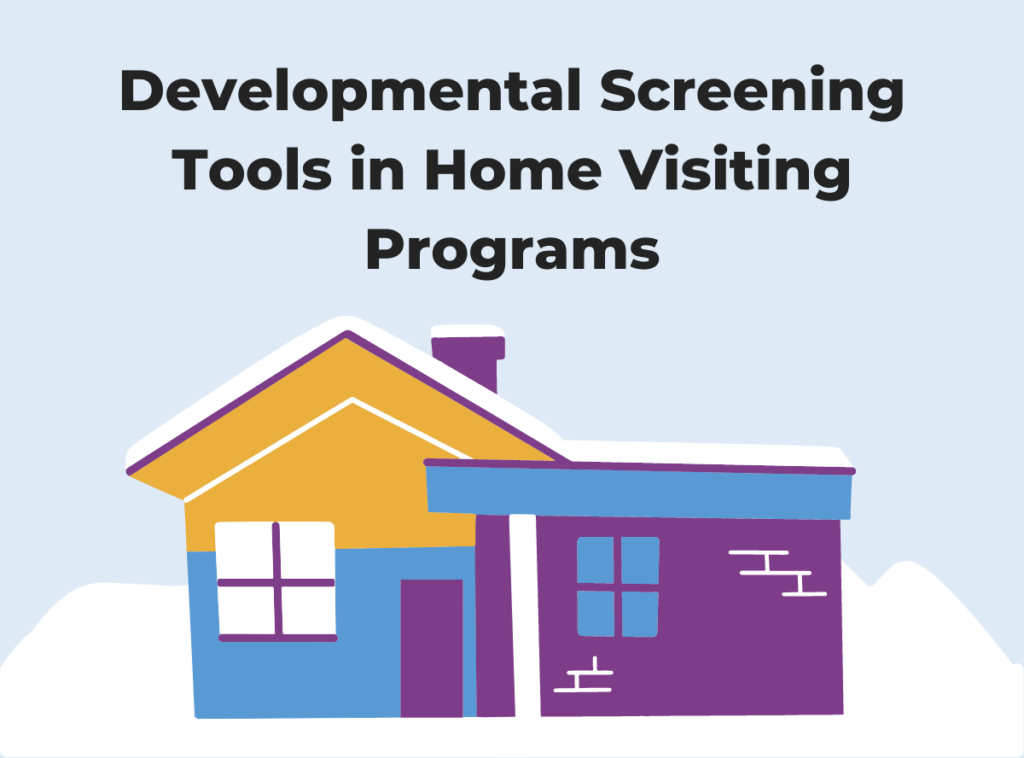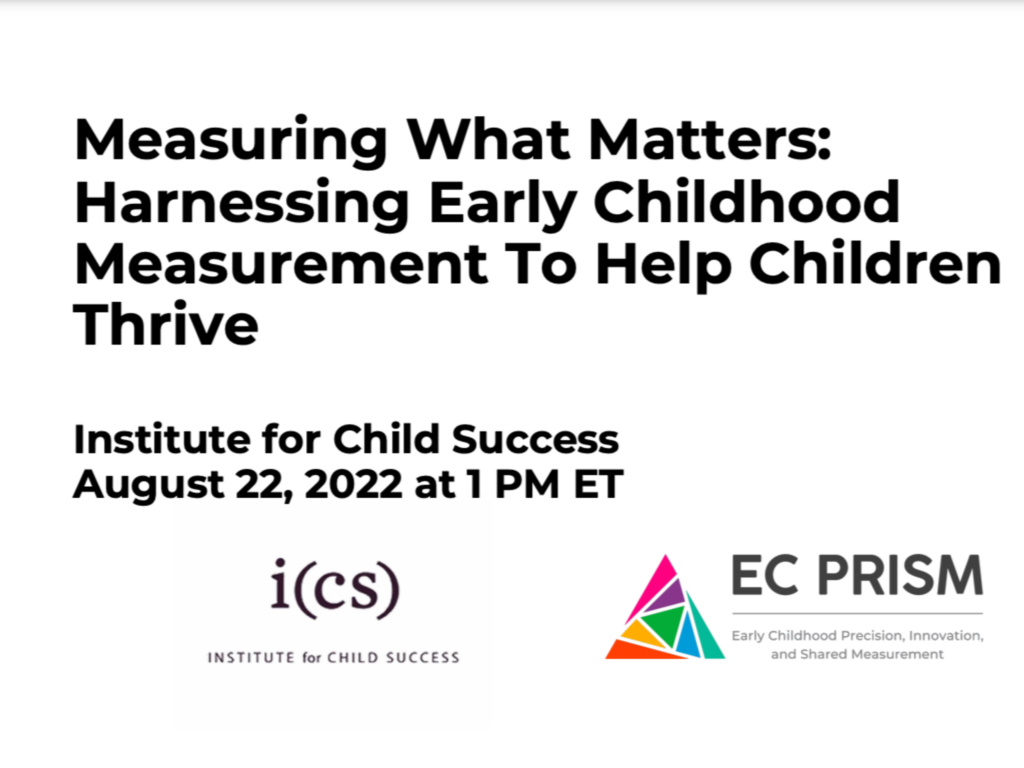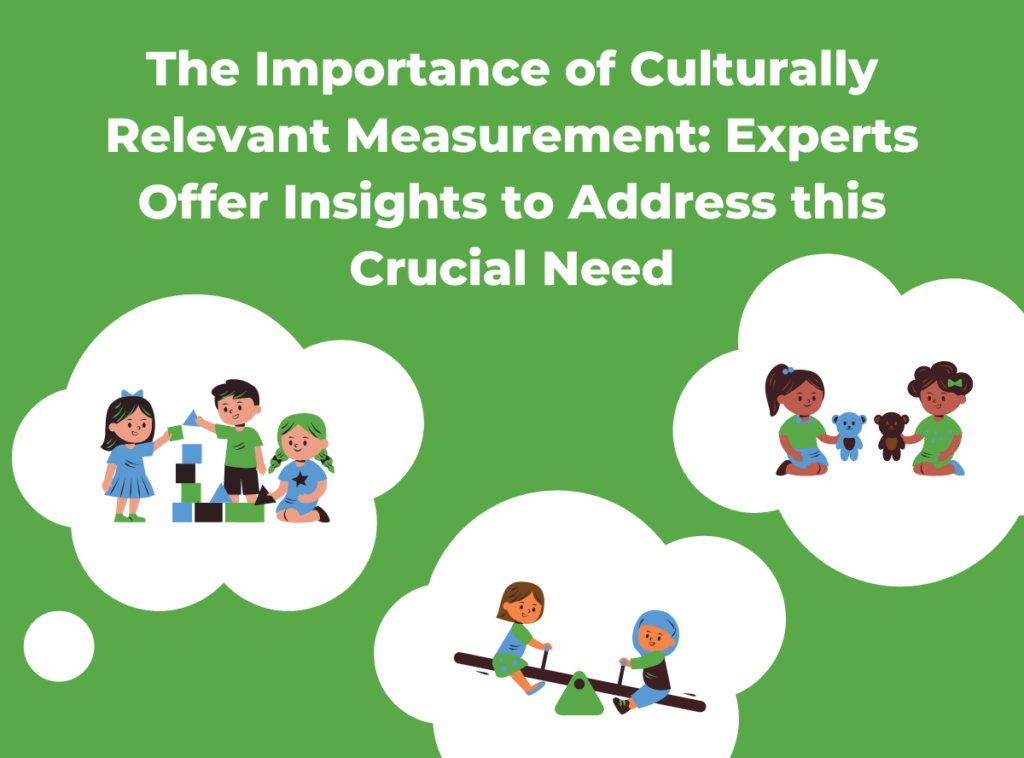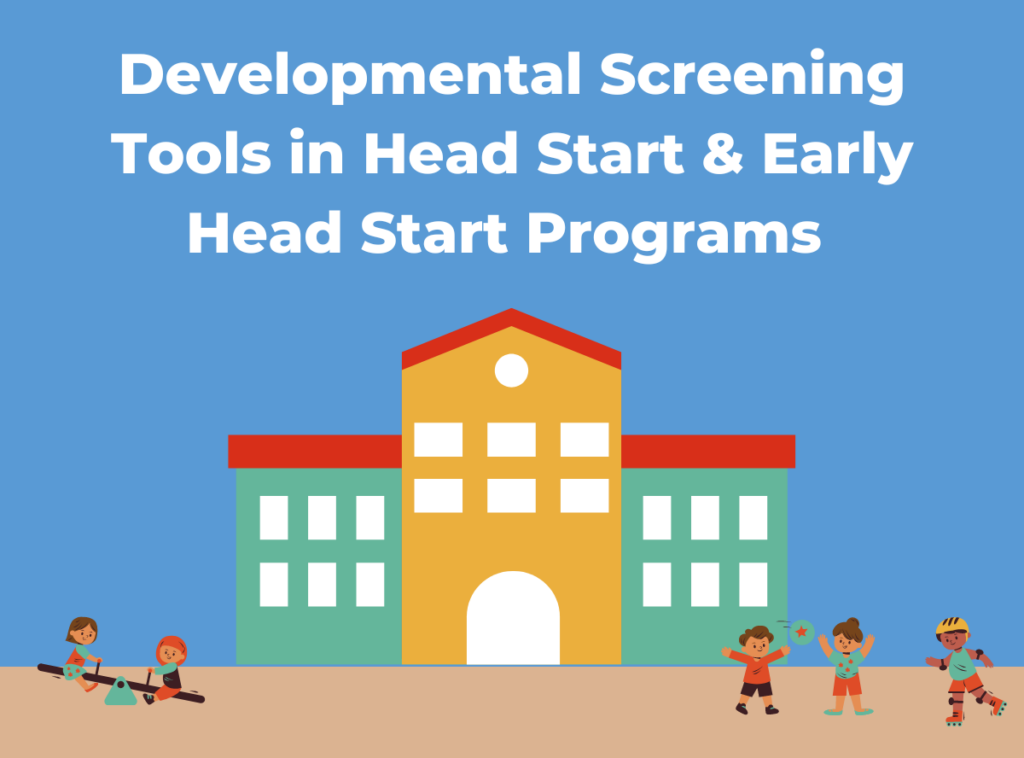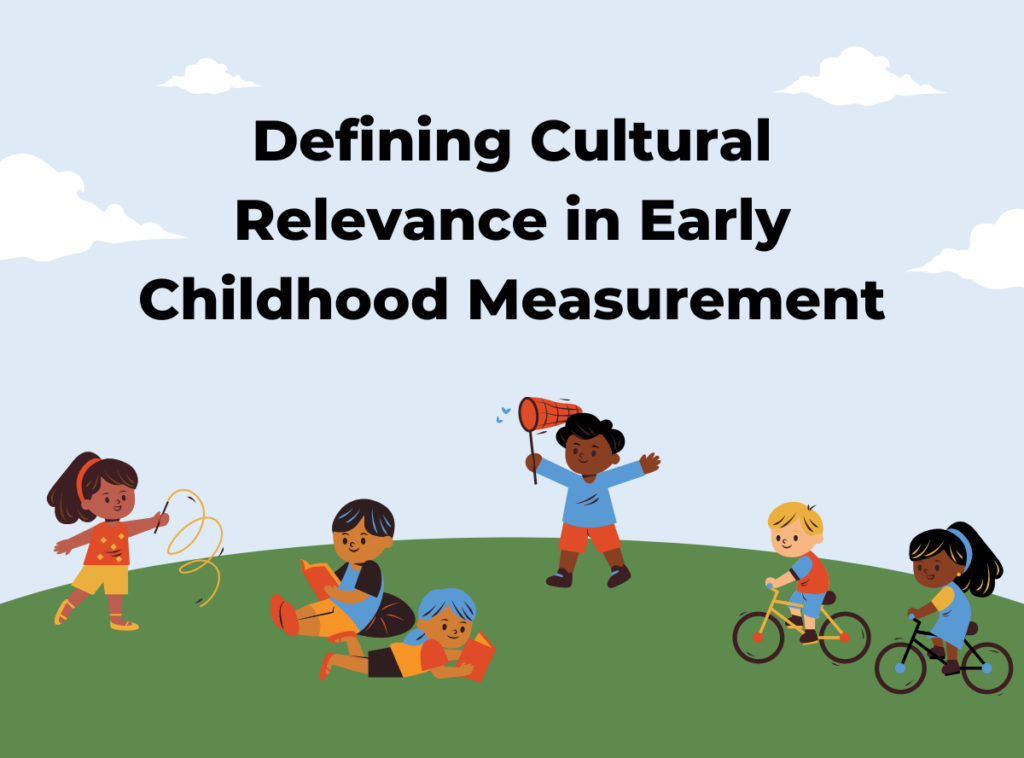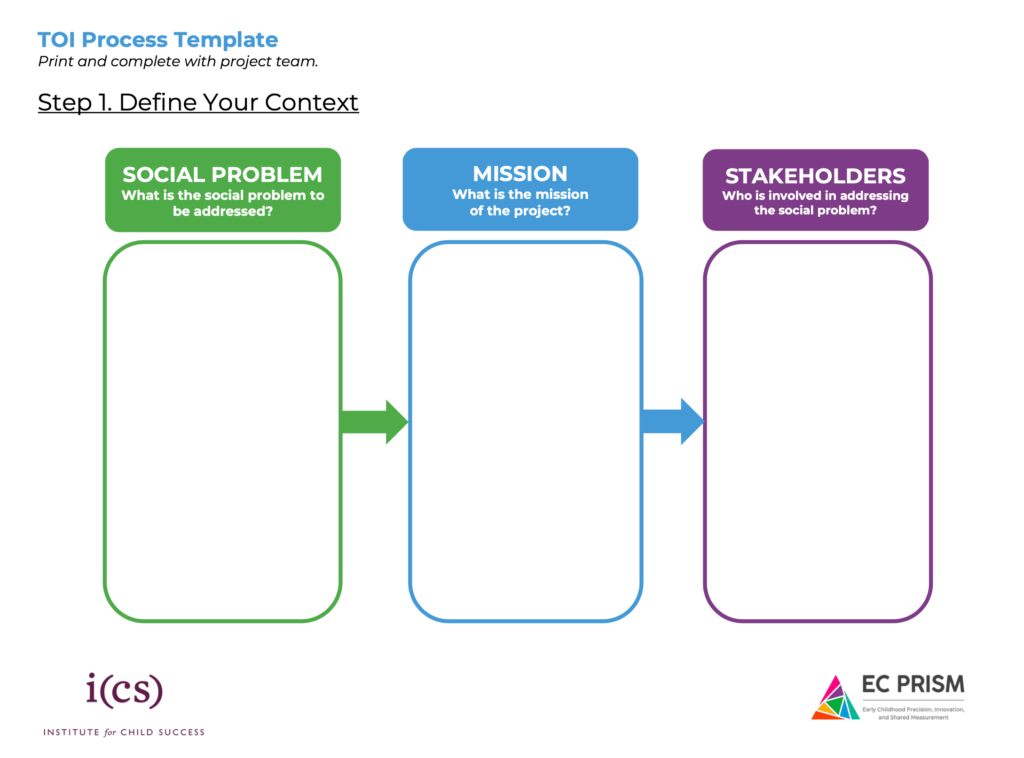Learn more about early childhood measurement using our resources below. On this page you’ll find educational documents, videos, FAQs, and a glossary to help answer your questions about measurement and how to use the IMPACT Measures Tool®.
Resources
Read to learn about how to address challenges related to critically needed support for the early childhood workforce, both at the policy level and program level.
The predominantly female childcare labor force experiences poor working conditions and poverty-level wages. It’s time to take care of the women who take care of America’s children.
We believe measurement should help support all children to thrive. See what we’ve been up to this year to achieve that goal, thanks to your support.
Should kids be ready for school, or should schools be ready for kids? Read our resource to learn about the importance of school readiness, how to measure it, and how to use measurement to promote equity.
View the evidence base on the positive impacts of home visiting, learn about MIECHV’s measurable outcomes and cost-effective implementation, and see how home visiting programs can become eligible.
View our chart for quick information on MIECHV, including eligible programs, targeted outcomes, and HomVEE evaluation elements.
Social-emotional development is a critical component of a child’s growth, and their ability to connect to the world around them. Explore our guide to learn more about how to promote and measure this area of a child’s development.
Pediatric well-visits offer a perfect opportunity to support and elevate early relational health among families. Read our resource to learn more about this topic and discover what measures are designed for use in clinical settings.
Home visitors may use screening tools to make referrals for evaluation and services, and work with families to support their child’s development. Find appropriate screening tools with the IMPACT Measures Tool®.
Miss our Measuring What Matters webinar? Browse the slide deck from VP Impact and Practice Dr. Aimée Drouin Duncan and Director of Science Communication Katie Hammond.
Early childhood measurement experts share their thoughts on the importance of culturally relevant measurement to address inequities in the field.
Learn more about developmental screening tools on the IMPACT Measures Tool® for use in Head Start or Early Head Start programs.
Experts in early childhood measurement provide insights on defining and promoting culturally relevant measurement.
Follow these steps to develop a Theory of Impact that will outline the connections between your strategies, targets, and outcomes, and begin to create your social impact.
Videos
Using the IMPACT Measures Tool® to Support Developmental Screening in Healthcare
In February 2023, Dr. Tyson Barker presented at the Nurturing Developing Minds Conference, covering popular developmental screening tools, family-centered ways to administer and discuss screening results with families, and more.
Measuring What Matters: Equity Considerations in Early Childhood Measurement Tools
Dr. Tyson Barker, Katie Hammond, and Dr. Aimée Drouin Duncan of EC PRISM® present on equity considerations in early childhood measurement tools at the Nurturing Developing Minds Conference & Research Symposium in February 2022.
Assessing the Available Assessments: IMPACT Measures Tool®
Watch our presentation on assessing the assessments available to Head Start and Early Head Start programs for the National Head Start Association’s What and Why of Child Assessments webinar series.
Theory of Impact
Learn more about an important tool called a Theory of Impact (TOI). A TOI, a type of logic model, can be used in any area of the early childhood field and can help answer complex questions about a program. In this video, we will go over the aspects of a TOI and an example of how a TOI can help organizations make informed decisions to increase their impact.
Types of Measures
In this video, we will explore the types of behavioral measures that are often used in the field of early childhood development. Learn about surveys, direct assessments, observational measures, interviews, and screening tools.
What Is Measurement?
In this video, we will explore the basics of measurement and define our understanding of how measures are used. Learn what measurement is and what it looks like in the field of early childhood development.
How to: Choose a Measure
Explore how to choose a measure that best fits your needs. In this video, we follow a preschool teacher’s assessment of two different measures to find the best fit for their context, purpose, and price range. The IMPACT Measures Tool® can help you in your measure selection process.
How to: Use the IMPACT Measures Tool®
Watch this video for a brief walkthrough of the IMPACT Measures Tool®. In this video, you will learn about the different features of the website. Search, compare and access measures using our website. Learn about our scoring system, how to set your preferences, and our other services.
IMPACT Measures Tool® Virtual Launch Event
Revisit our January 2021 unveiling of the IMPACT Measures Tool®. Learn about the exciting features of our website, and how to harness the tool to meet your unique measurement needs.
IMPACT Measures Tool® Advanced Search and Features
Katie Hammond, Director of Science Communications at EC PRISM®, demonstrates search features through the IMPACT Measures Tool® at the January 2021 virtual launch event.
Scoring Breakout: Usability & Cost
At our January 2021 virtual launch event, Dr. Carly Champagne and Camille Sullivan describe the cost and usability categories of the IMPACT Measures Tool®.
Scoring Breakout: Technical Merit & Cultural Relevance
Dr. Sonny Mattek and Joanna Wright explain the Technical Merit and Cultural Relevance scoring categories at our virtual launch event for the IMPACT Measures Tool® in January 2021.
Equitable, Ethical, and Effective Use of Measurement and Early Childhood Research
Professor and keynote speaker Dr. Brenda Jones Harden illustrates equitable, ethical, and effective use of measurement and early childhood research in IMPACT’s November 2020 virtual learning event, “Measurement in Early Childhood: Building Pathways to Empowerment & Continuous Improvement.”
Rethinking Measurement in Early Childhood: What Matters
Portia Kennel, Senior Advisor at the Buffett Early Childhood Fund, discusses priorities for early childhood measurement in a keynote speech of IMPACT’s virtual learning event, “Measurement in Early Childhood: Building Pathways to Empowerment & Continuous Improvement” in November 2020.
Panel Discussion: Perspectives on Measurement in Early Childhood
In this panel discussion moderated by Dr. Joan Lombardi for our virtual learning event in November 2020, panelists Jason Gortney, Dr. Stephanie De Anda, Dr. Iheoma Iruka, and Dr. Philip Fisher share perspectives on measurement in early childhood.
In the Spotlight: IMPACT Measures Tool®
The IMPACT Measures Tool® was developed to address the diverse needs of early childhood and parenting initiatives. The IMPACT Measures Tool® was featured in the Innovation to Impact Realized video series by the University of Oregon’s Innovation Partnership Services.
Frequently Asked Questions (FAQs)
Where do I start?
Search for measures by title, subject, or keyword on the Measures page. Then, compare and access your favorite measures. Not ready to search yet? Learn more about measurement on this page, or learn about our scoring system, or our team.
How do I use the search feature?
The search feature can help you find the measures available in our online database. You can enter any measure name, keyword, or search query on the search bar, and the results will be sorted according to your preferences. Learn more about the search feature.
How do I compare different measures?
Finding the right measure for your needs is complex. The compare feature allows you to get a quick snapshot of the similarities and differences between two or three measures.
You can easily compare measures from the search results by selecting the ‘Compare’ button for each individual measure. You will be directed to a new page that shows you the most relevant details of each measure, side by side for easy comparison.
How do I use the scoring diamond?
The scoring diamond is a visual representation of how well a measure scores in each of the four key categories: cost, usability, cultural relevance, and technical merit.
How can I access a copy of the complete measure?
You can find information on how to access a measure on the individual measure’s detailed page. For most readily available free measures, you can easily download a copy of the complete measure from our website. For other measures (such as at-cost measures), you will be directed to the publisher or authors’ website for further information on accessing the measure.
Who can use the IMPACT Measures Tool®?
The IMPACT Measures Tool® is designed to be accessible to individuals and organizations working in the early childhood ecosystem. This includes community-based organizations, academic institutions, healthcare systems, philanthropic and policy-based organizations, child care systems, and more.
I am not affiliated with an early childhood organization. Can I still access the IMPACT Measures Tool®?
Yes! It is important to us that we provide this tool as an open-access resource for the public. Anyone interested in learning more about measurement and evaluation of early childhood development and parenting is encouraged to use the IMPACT Measures Tool®.
What other tools are available on the website?
Our goal is to educate and empower our users on measurement and evaluation in the field of early childhood.
We provide educational content on different measure types, administering a measure, psychometric properties of a measure, and different domains of early childhood development.
Our website also allows you to create an account and connect with a community dedicated to early childhood and parenting measures. You can also get in touch with our team by emailing us or reaching out over social media. You can also fill out an application for a free consultation call to discuss how we can further support your organization.
Does IMPACT develop or publish measures?
The IMPACT Measures Tool® is not a publisher or distributor of the measures listed on this site. IMPACT provides review of and basic information about available measures and provides a link (via the “Access Measure” button) directly to the publisher or developer for measure access and further information.
What is measurement?
Measurement is the process of translating a characteristic to a number. This includes translating the size of a paper into its length in centimeters or a child’s early math skills into a score on a kindergarten readiness assessment. In psychology or education, a measure is a tool used to gather specific information about an individual or group. Early childhood measures gather information about children, their caregivers, and parent-child interactions to understand more about how children develop early in life. For example, a caregiver may complete a survey on their child’s interpersonal skills. The survey — the measure — would translate these skills into a score.
What types of measures are available?
Each measure available on the website is categorized into five different measure types: direct assessment, survey, observation, screening tool, and interview.
- Direct Assessments are measures that directly assess an individual’s skill in a specific area (e.g., receptive vocabulary or executive function). Direct assessments may be administered via paper-pencil or electronically, and usually require an administrator. Results from direct assessments should never be used as an indicator of clinical referrals since they are not designed with that purpose in mind.
- Surveys or questionnaires are self-report measures with questions regarding characteristics, behaviors, or opinions of individuals at single or multiple time points. Surveys are one of the most common methods of measurement, but often need to be mindful of overgeneralization and potential biases. Results from surveys should never be used as an indicator of clinical referrals since they are not designed with that purpose in mind.
- Observational measures require direct observation (in person or via video) of individuals or a group to administer and score. These measures require multiple coders to score the observations. Scoring of observation measures are conducted in real-time or after administration, and rely on several factors such as the length and frequency of observations as well as the researcher’s interpretation. In addition, observational measures need to consider participant privacy and confidentiality concerns (e.g., in healthcare).
- Screening tools are measures intended to detect specific indicators of risk (e.g., food insecurity or autism spectrum disorders) and identify whether further evaluation is needed. Screening tools are a first indication of whether an individual may be at risk for developmental or clinical issues, but do NOT constitute a clinical diagnosis. In addition, the accuracy of the score cutoffs used for screening tools depends on the comparison measure used in development. Screening tools are NOT intended to be used to measure a program’s impact.
- Interviews involve an administrator asking the individual questions directly, rather than respondents/participants recording their own responses. Interviews can be structured, semi-structured, or unstructured. Interviews can also be administered individually or in a group, for example, in a focus group setting.
How do I choose a measure? What makes a “good” measure?
There is no one size fits all when it comes to choosing a measure. When developing a measurement plan, it is crucial to choose measures that have been thoroughly researched and offer data to support their reliability and validity (concepts covered in our Scoring page), as well as making sure that they match your program’s purposes and identified outcomes (cost, usability, cultural relevance, and technical merit). While a measure might be thoroughly researched, it might not be appropriate for your context and price range. The IMPACT Measures Tool® allows you to easily compare different measures based on your preferences and needs.
Learn more about how we score each measure on our Scoring page.
How do I administer a measure?
Measures can be administered in various ways, depending on the topic, measure type, the individual taking the assessment, and the environment they are taking the assessment in. Measures can be administered electronically (on a computer, phone, or tablet), over the phone, and/or in-person. While some measures require extensive training for administration and may even require a licensed administrator, other measures might only need written instructions. The administration of a measure is a crucial factor in the decision-making process for choosing a measure.
Learn about how the IMPACT Measures Tool® accounts for how measures are administered in the Scoring page.
How many measures are included in the IMPACT Measures Tool®?
The IMPACT Measures Tool® database currently houses over 200 measures that are scored and categorized for easy search and comparison. We will be regularly updating our online database to provide information on additional measures.
Where can I find measures in different languages?
There are two ways we share information about measures offered in different languages:
- As a specific measure scored individually.
- As a descriptive category listing the languages that the measure has been translated into.
The deciding factor between whether a language is listed descriptively versus considered as an independent measure that is scored is related to validity. If the measure has established validity evidence in a specific language rather than simply being translated, it is considered an independent measure and scored accordingly. If a measure has only been translated into a different language but has not been validated, that language is only listed descriptively in the measure detail page.
Note: There may be measures validated in languages that are not yet included in the database simply because they have not yet been included or scored.
What topics of early childhood development and parenting does the IMPACT Measures Tool® cover?
The IMPACT Measures Tool® includes measures in the areas of: caregiver health and well-being, child mental health, overall child development, social-emotional development, language development, executive function, academic skills, family/home environment, classroom/childcare quality, caregiver-child interaction, cultural competency, and healthcare/human services quality.
What is executive function?
Executive function is a set of everyday mental skills that allow us to set and achieve goals, remember instructions, and pay attention to multiple tasks successfully. These skills are important for learning and development during early childhood and adolescence. Factors such as toxic stress and early adversity can negatively affect the development of executive function skills.
The three main areas of executive function are: working memory, mental flexibility, and inhibitory control. Working memory is the brain’s ability to remember new information, use that information over short periods of time, and organize it for long-term storage.
Mental flexibility, also called cognitive flexibility, allows us to maintain and/or shift attention in response to different instructions and settings. It is a key skill for problem solving.
Inhibitory control enables us to set different levels of priorities and resist impulsive actions, including regulating behaviors and self-monitoring those behaviors.
What is self-regulation?
Self-regulation is the ability to control oneself, including our behaviors and emotions. It allows us to focus on the task at hand by identifying an impulse, reducing the intensity of the impulse, and gaining control over these impulses. For children, self-regulation is a skill that is gained through a trial-and-error practice, requiring guidance and feedback from their caregivers.
While self-regulation and executive function are sometimes used interchangeably, as they both are integrated with goal-setting, attention-shifting, and problem-solving, it is important to understand that these are different processes. While executive function is a component required to achieve successful self-regulation, other factors (standards of desirable behavior/emotions, temperament, motivation) also influence successful self-regulation. Often, executive function measures are used as a predictor or moderator of self-regulatory outcomes.
What is kindergarten readiness?
While there is no single definition of kindergarten readiness, it often refers to a set of developmental milestones assessing children’s behavior, skills, and attitudes upon kindergarten entry. Domains under kindergarten readiness include children’s academic and cognitive skills, social-emotional development, and physical development.
Schools, policymakers, and early childhood researchers use kindergarten readiness to gain an understanding of the skills of the student, informing their choices about instructional goals and curriculums required to meet their students’ needs.
Although kindergarten readiness is often a predictor of later school success, it is often poorly/vaguely/inconsistently defined and therefore difficult to measure. Many states in the United States vary on both their definition and assessment of kindergarten readiness. This multidimensional concept is measured typically with a mix of direct assessment and observation and is often a set of multiple data points rather than a single score in an assessment.
How are the measures scored?
The IMPACT Measures Tool® uses a research-driven scoring method to examine each measure’s cost, usability, cultural relevance, and technical merit. This scoring system allows for easy comparison to assist you in informed decision-making.
Learn how each measure is scored by our team of measurement and evaluation experts on the Scoring page.
How do I interpret the measure scores?
The scores for each measure are intended to help you in your decision-making to choose a measure that is the best fit for your needs.
Measures have different strengths and weaknesses across the four categories (cost, usability, cultural relevance, and technical merit), and the choice of use depends on the context and purpose. You can also set your preferences for a desired minimum score of measures for each category.
For example, a user who is interested in a language measure but wants low costs and electronic administration can compare scores across measures to find the language measure that is most appropriate for their needs.
What is IMPACT Measures Tool® selection process for scoring and including measures in the database?
All measures included in the IMPACT Measures Tool® database are selected based on the following three main criteria: relevance to particular domains, availability of measure information, and membership to a measure family.
Domains include: caregiver health and well-being, child mental health, overall child development, social-emotional development, language development, executive function, academic skills, family/home environment, classroom/childcare quality, and caregiver-child interaction.
Given our team’s expertise in early childhood as well as the lack of high quality standardized measures in the field, we specifically focus on measures relevant to families with children ages zero to five.
The availability of measure information is also a deciding factor in the measure selection process. Specifically, published measures with publicly accessible evidence (e.g., descriptive characteristics, psychometric information) are included in the database.
Measures from the same measure family (collection of individual measures which share the same core elements) are also included in the database.
In order for measures in additional languages to be scored as individual measures in a measure family, technical merit evidence must be available. Translations are included in the Measures Detail page.
Who scores the measures?
Our team of measurement and evaluation experts is made up of mission-oriented researchers with extensive experience in early childhood development, education, and public health.
Our experts have an educational background (PhD, master’s, and bachelor’s level) in educational psychology, developmental psychology, prevention science, and more. Additionally, the IMPACT Measures Tool® team refers to an advisory team composed of measurement experts for ongoing input and review.
How can I get my measure onto the IMPACT Measures Tool®?
We encourage measure developers to reach out to our team if they have a measure they would like us to consider adding to the IMPACT website. In order to review and score a measure, the IMPACT team needs access to a website, manual, and/or original validation study for that measure. Inclusion of a measure depends on whether the measure falls within IMPACT’s scope of early childhood and parenting measures, as well as current project priorities and bandwidth; therefore, we cannot guarantee responses to all inquiries.
What is IMPACT Measures Tool® selection process for scoring and including measures in the database?
If you believe your measure meets the eligibility requirements and is not on our website, please email ecprism@instituteforchildsuccess.org to submit:
- Your website domain and any necessary logins to view the measure and materials.
- Your manual or original validation study.
Please note, at this time we score measures based on one of the resources above to ensure all submissions are using similar sources, as we aim to promote an equitable process to measure selection from developers.
My measure is on the IMPACT Measures Tool®, and I see information on my measure’s webpage that may be inaccurate. What should I do?
Please check out our “Measure Scoring” tab in the FAQ section of our Learn page. This provides definitions for each category of information displayed about measures, and may help answer your question.
We aim to provide as accurate and up-to-date information as possible, and we appreciate your input. All references used in scoring measures are posted to the measures page. If you are a measure developer and note this resource is out-of-date, you may resubmit your manual and/or submit your most recent validation study for rescoring up to one time per calendar year. Please email your updated reference to ecprism@instituteforchildsuccess.org. Please note, this resource will replace the existing resource and previously scored data.
My measure is on the IMPACT Measures Tool®, and I have questions about why it received a particular score (in cost, usability, technical merit, and/or cultural relevance). What should I do?
Please check out our Scoring page for an overview of our scoring system. If you’d like more detailed information about how measures are scored, you can download our Scoring Guidebook.
My measure is for sale online. If my measure is listed on the IMPACT Measures Tool®, does that mean IMPACT website users will be able to access the measure itself?
No. If a measure is available for sale, the “Access Measure” button on the measure’s webpage will direct users to the publisher’s website where the measure can be purchased. This access button only links directly to a PDF of the measure itself if it is freely downloadable online from the measure’s official website.
Can I request that my measure be taken off the IMPACT Measures Tool®?
EC PRISM® at the Institute for Child Success provides free access to the IMPACT Measures Tool® as a resource of measure information, to empower individuals and organizations to make the best measurement choices for their unique needs. To achieve this, we serve as a third-party reviewer to provide basic information and scores about measures, and keep our measure information as up-to-date as possible. We welcome measure developer input, questions, and updated information, but we also reserve the right to include measure reviews for non-commercial use on our website, for measures that are publicly available in the early childhood field. If you have specific concerns or extenuating circumstances about your measure being included on the IMPACT Measures Tool®, please reach out to us at ecprism@instituteforchildsuccess.org. Please note that we cannot guarantee removal of measures or scores from the IMPACT website due to dissatisfaction with scores or for other reasons.
Is the IMPACT Measures Tool® a publisher of measures?
No. The purpose of the IMPACT Measures Tool® is to provide an impartial review of existing measures and make basic information about these measures available to the general public, to help those in the early childhood field select and use measures that fit the needs of their communities. IMPACT is not a publisher or distributor of measures.
I have additional information about a measure on the IMPACT Measures Tool®, that I would like the field to know. What should I do?
In addition to contacting our team at ecprism@instituteforchildsuccess.org, we encourage you to use the feedback feature at the bottom of each measure’s webpage. All visitors to the IMPACT Measures Tool® website can view these comments, and they can be a useful tool for our community in learning of other resources and experiences. We thank you for engaging with the IMPACT Measures Tool® and the IMPACT community!
Glossary
Administrator: Person who carries out/administers the measure. Not required for all measures.
Cost: Measures that cost less and are easier to access get higher scores.
Cultural Relevance: Measures that are more appropriate or generalizable to different cultural contexts get higher scores.
Direct Assessment: Assessment of a child’s direct skill or performance in a specific area. Not to be used as an indicator for a clinical referral.
Executive Functioning: A set of everyday mental skills that allow us to set and achieve goals, remember instructions, and pay attention to multiple tasks successfully.
Interview: Administrator directly questions respondents (instead of respondents filling out their own responses).
Measure Family: A group of measures with the same core elements but different length, content, age group, or language.
Kindergarten Readiness: While there is no single definition, kindergarten readiness often refers to a set of developmental milestones assessing children’s behavior, skills, and attitudes upon kindergarten entry.
Norms: Norming or norms refers to the process of calculating the means and standard deviations of measure scores for potential comparison with a standard group of respondents.
Observation: Requires an administrator to observe individuals or groups (in person or via video) in order to administer and/or score the measure.
Psychometrics: The study of measurement in behavioral and social sciences by means of statistical calculations and analysis of measurement for accurate and consistent results.
Respondent: Person who completes the measure. Required for all measures.
Screening Tool: Measures intended to detect specific indicators of risk and identify whether further evaluation is needed. Does NOT constitute a clinical diagnosis.
Survey: Set of questions for individuals or groups about characteristics, behaviors, or opinions.
Technical Assistance: A process of providing targeted support to organizations in need. EC PRISM® provides technical assistance consulting to early childhood programs in areas of early childhood program design, implementation, evaluation, and scale.
Technical Merit: Measures with more consistent and accurate results get higher scores.
Usability: Measures that are easier to administer, analyze, and interpret get higher scores.
Measurement and Evaluation Services Consultation
Looking for support with research design, implementation, or evaluation?
Request a free consultation call with our team to discuss our measurement and evaluation services.
Contact Us
We are committed to supporting early childhood programs. Have feedback or questions? Contact us or visit our FAQ.
Email: ecprism@instituteforchildsuccess.org


